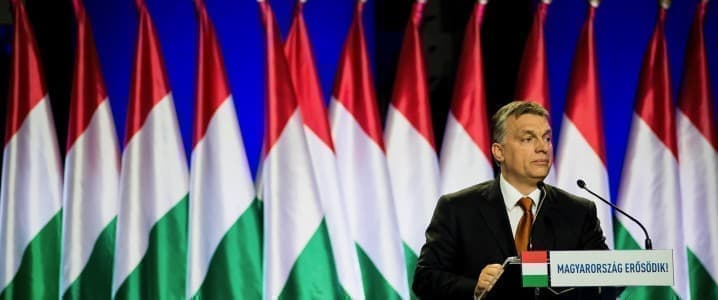Oil And Gold Forecast, News and Analysis:
- Home
- Latest Energy News
Hungary and Bulgaria Try to Keep Russian Gas Flowing
Hungary and Bulgaria are in a bind. With U.S. sanctions hitting Gazprombank—the go-to middleman for Russian gas payments—the two are scrambling to figure out how to keep the gas moving without breaking the rules.
Hungarian Foreign Minister Peter Szijjarto claims they have cracked the code with a “legal-financial solution.” Meanwhile, Bulgaria is keeping its cards close to the vest, simply saying they’ve discussed an “option” that could work for everyone.
‘;
document.write(write_html);
}
For Hungary, Russian gas is a lifeline they’re not ready to cut, even as Europe tries to move on from its reliance on Moscow. Prime Minister Viktor Orban recently sat down with Vladimir Putin to talk shop and make sure Hungary stays warm this winter.
Bulgaria, on the other hand, has hinted that it’s willing to play hardball. If Gazprom fails to sort out payments, they might shut down the transit of gas through their territory—a move that could ripple through Central Europe.
Both countries share one thing in common: they are trying to protect their energy security without stirring up a geopolitical storm.
Last week, Russian President Vladimir Putin has scrapped the requirement for natural gas payments to be processed exclusively through the sanctioned Gazprombank. European buyers can now settle payments via other banks, a significant shift that briefly calmed markets, with European gas benchmark prices dropping by 2.3%. The decision comes amid heightened tensions after the U.S. sanctioned Gazprombank last month as part of broader measures against Moscow for its ongoing war in Ukraine. The market became jittery out of fear of a potential disruption in Russian gas supplies to Europe, particularly for Central European nations like Hungary, which rely heavily on these imports.
Analysts remained divided on the impact of Russia’s relaxation of the payment requirements. Jonathan Stern of the Oxford Institute for Energy Studies notes that while Putin appears eager to retain European exports, the flexibility may do little to ease long-term uncertainty for buyers.
By Julianne Geiger for Oilprice.com
More Top Reads From Oilprice.com
- Exxon to Increase Oil Production by 18% By 2030
- Gazprom Hits Maximum Capacity of Pipeline Gas Flows to China
- European Energy Majors Shift Back to Oil and Gas
Join the discussion | Back to homepage
`;
document.write(write_html);
}
Julianne Geiger
Julianne Geiger is a veteran editor, writer and researcher for Oilprice.com, and a member of the Creative Professionals Networking Group.
More Info
Leave a comment
Leave a comment
Source: https://oilprice.com/





More Stories
Dallas Fed Survey Respondents Bearish on Short Term Oil Prices
Russia Not Releasing Details of Talks with the U.S. on Ukraine
Glencore Cuts Coal as Market Glut Smothers Prices